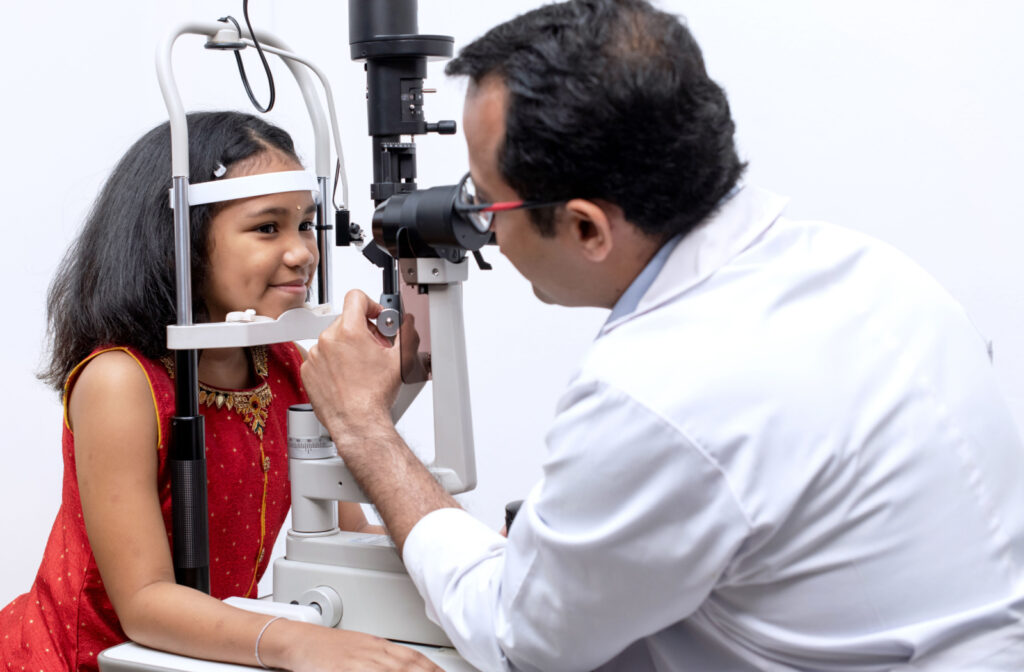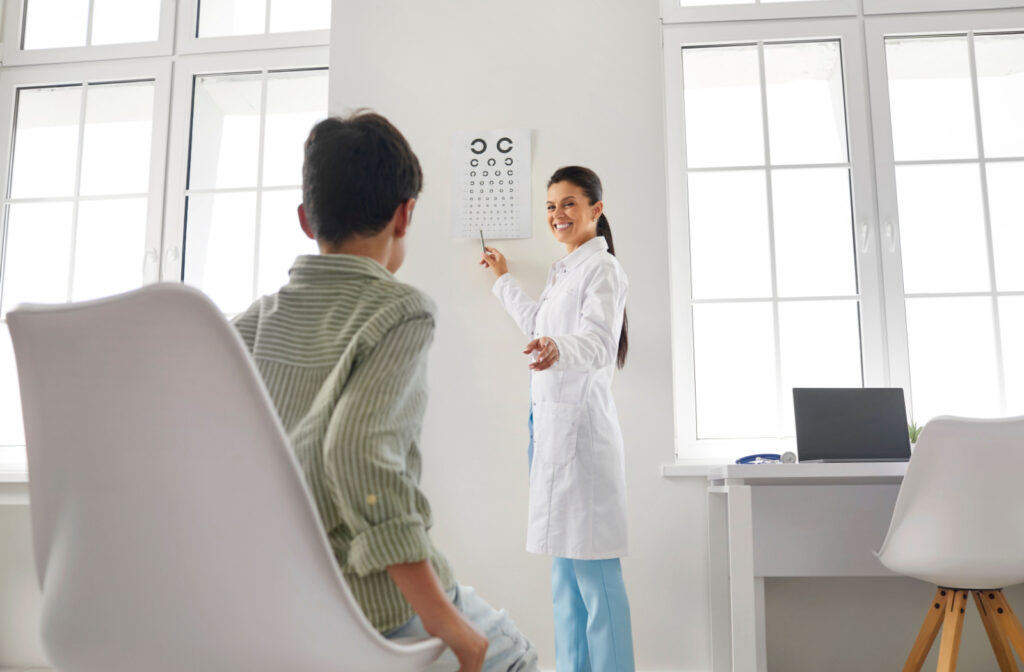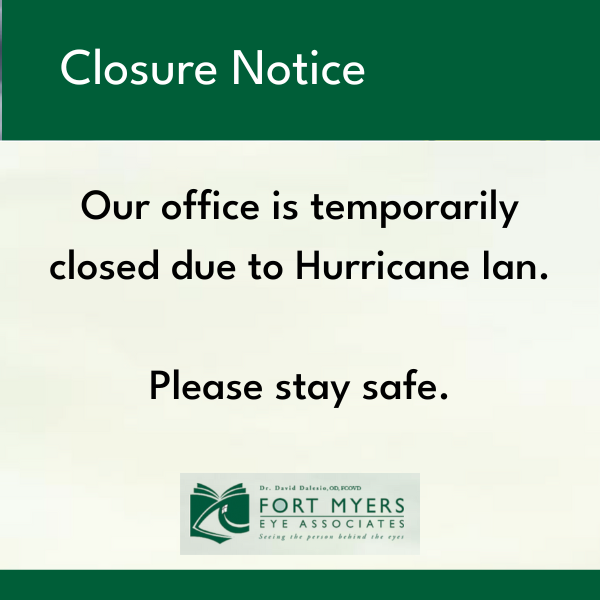Double vision can be a concerning issue for anyone, but it can be especially concerning for your child. Double vision can impact a child’s daily life and even hinder their development.
Double vision is most often a sign of a greater underlying condition, such as strabismus (crossed eyes) or amblyopia (“lazy eye”). Fortunately, many of the underlying conditions that cause double vision can be improved through vision therapy. Vision therapy involves visual learning activities often targeted to improve your child’s eye coordination and focusing abilities. It aims to strengthen the connection between the eyes and the brain.
What Is Double Vision?
When your eyes, muscles, nerves, and brain all work together, they produce a single image—this is referred to as binocular vision. Double vision, also called diplopia, is a vision problem that occurs when your eyes fail to work together properly. Instead of seeing one image, you see duplicate or overlapping images.
Double vision may indicate something’s wrong with one of these crucial parts.
What Causes Double Vision in Kids?
In most cases, double vision is a symptom of a larger underlying problem. There are several conditions that may cause a child to experience double vision, including:
- Refractive error: Uncorrected refractive errors, such as astigmatism or myopia, can cause double vision.
- Amblyopia: Commonly known as a “lazy eye,” amblyopia occurs when vision in one or both eyes does not develop properly. In most cases, one eye will be significantly stronger than the other, leading to your brain relying on the stronger eye to produce an image.
- Strabismus: Strabismus refers to a misalignment of the eyes, where one or both eyes turn inward or outward. This misalignment can disrupt binocular vision, leading to double vision and amblyopia. Strabismus also commonly leads to amblyopia, making early intervention especially important.
- Convergence insufficiency: Convergence insufficiency affects how the eyes work together, causing them to drift outward when doing close work such as reading or looking at a smartphone screen.
- Neurological conditions: Certain neurological conditions, such as head trauma, brain tumors, or neurological disorders, can affect the coordination between your eyes.
Diagnosing Double Vision
For many children, it can be difficult to verbalize or even identify that they are even experiencing a vision problem. As a parent, it’s important to take your child for regular check-ups with their eye doctor, especially during key developmental years.
Additionally, conditions such as amblyopia and strabismus most often develop during infancy, making early detection and treatment crucial for supporting healthy development.
Some common signs that your child may be experiencing vision problems are:
- Covering one eye
- Squinting
- Frequently rubbing their eyes
- An eye turning in or out
- Difficulty with eye-hand-body coordination
During a comprehensive or developmental vision eye exam, your eye doctor can identify double vision and its underlying cause. Once the underlying cause has been diagnosed, the optometrist can design an appropriate treatment plan, including vision therapy.
The Role of Vision Therapy
Vision therapy is an office-based treatment that aims to improve how your child’s eyes work together with the brain and how your child interprets visual information. It can be particularly beneficial for children experiencing double vision as it can often address the underlying cause.
Vision therapy involves a series of customized exercises and activities prescribed by an eye care professional. These exercises are designed to target and improve various aspects of vision and eye function.
Vision Therapy for Double Vision
Vision therapy is a safe and effective treatment for eye conditions like amblyopia and strabismus, both of which are the leading causes of double vision in children. A vision therapy plan for these conditions may focus on improving:
- Eye coordination: How your eyes work together to align properly and create a single, unified image.
- Binocular vision: How your brain combines images from each eye into a single, 3D picture of your surroundings.
- Depth perception (stereopsis): How you perceive and accurately judge the distance of objects in your visual field.
By addressing these visual functions, vision therapy can help ensure your child’s proper visual development and restore single, clear vision.
Alternative Treatments for Double Vision
Depending on the underlying cause of your child’s double vision, vision therapy may not always be the most appropriate treatment option.
If your child is experiencing double vision due to an untreated refractive error, they’ll likely need corrective lenses such as glasses or contacts. Double vision caused by a neurological condition can be more complicated to diagnose and treat and, in most cases, requires an ophthalmologist or neurological specialist.

Finding a Qualified Vision Therapist
If your child has a vision problem like double vision, vision therapy may be the solution you’ve been looking for. This personalized treatment can help your child’s eyes work together, improve visual tracking abilities, enhance depth perception, and promote better visual focus.
At Fort Myers Eye Associates, we offer comprehensive children’s vision care, vision therapy, pediatric eye exams, and developmental vision exams. Contact our team to book an appointment.





